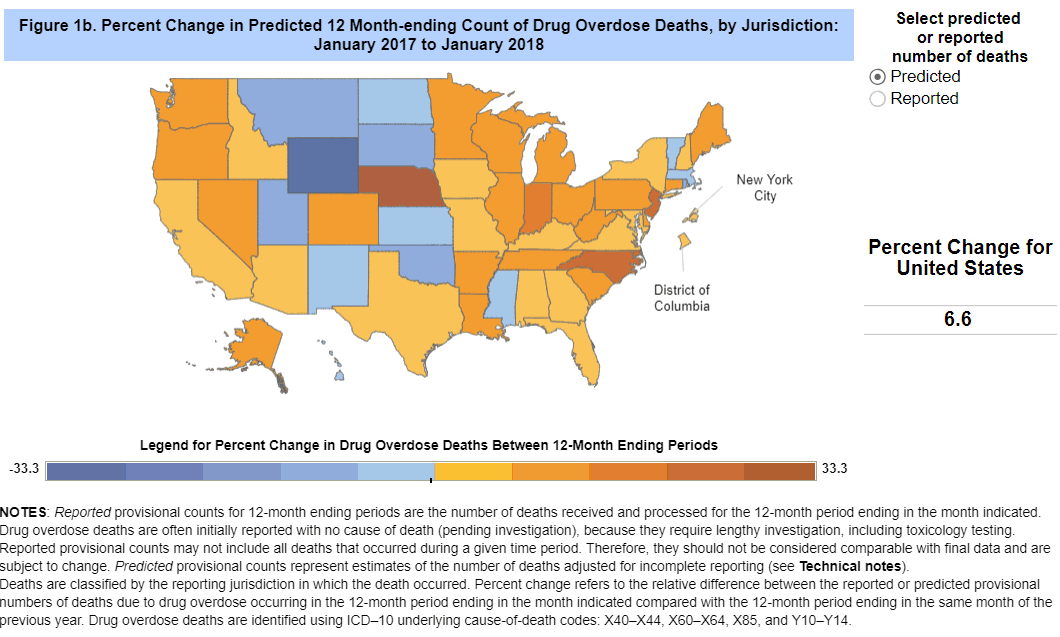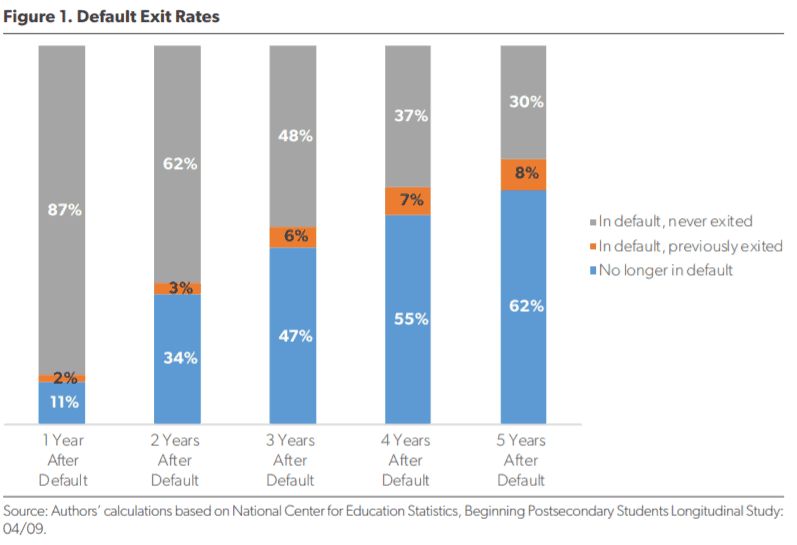Need to Know
Do you read Friday@Five? We want to hear from you! Please take our reader survey to help us understand the content you value so we can better serve you. Take the short survey here.
From August 24 to September 4, EducationNC will be visiting all 58 community colleges in North Carolina as we launch our postsecondary work. That week, EdNC.org will feature perspectives and articles on our community colleges, and we will be launching a weekly postsecondary newsletter, called Awake58. Sign up for the newsletter here and be sure to follow us on Twitter and Facebook at @Awake58.
Dropping Knowledge
North Carolina had one of the highest increases in drug overdose deaths in 2017, according to new data released this week from the CDC. From January 2017 to January 2018, reported drug overdose deaths increased by 17.7% in North Carolina. However, due to under-reporting, CDC predicts that drug overdose deaths actually increased by 22.5% over that time period. The map below compares percent change in drug overdose deaths by state.

For Your Consideration
In last week’s Friday@Five I looked at a report on student loan repayment rates. This week, AEI released a new report looking at what happens when students default on federal student loans. The report finds that 7 in 10 borrowers who default on a federal student loan will exit default status within five years, but some of those who exit via consolidation or rehabilitation may fail to pay down their debt, leaving them at risk for defaulting again.

One of the main takeaways from the report is that the policies governing federal loan default are complex, confusing, and often counterintuitive. For example, the report states, “Harsher penalties are imposed on borrowers who quickly repay their loans in full after defaulting than on those who engage in a lengthy, bureaucratic ‘rehabilitation’ process but make no progress in paying down their debts.”
The report concludes with several recommendations, including combining default options and simplifying collection fees.



